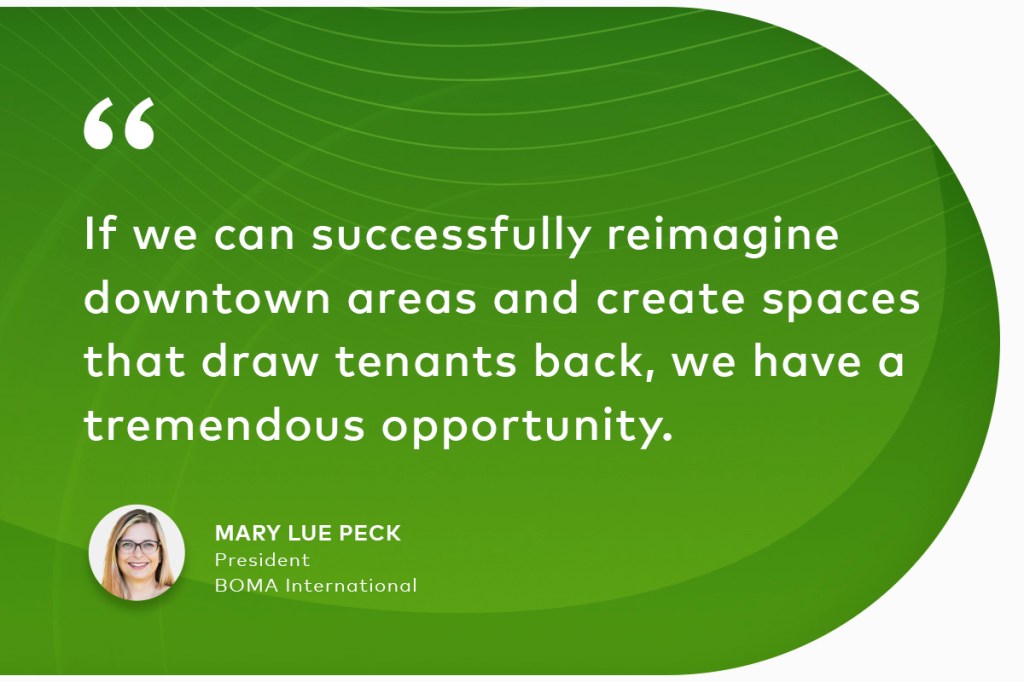
Mental health is a difficult topic to bring up, and for years, little has been said about it in property management and real estate. In 2021, Yardi and several property management associations sponsored a mental health resource library to help people cope with the effects of the pandemic. But the truth is that mental health was an industry-wide problem long before COVID-19.
Having said that, we’re lucky to live in a time when mental health issues don’t have the stigma they once did. People are talking about mental and emotional wellbeing a lot these days, possible more than ever before.
But “talking about” mental health in the broad cultural sense doesn’t necessarily carry over to professionals in the real estate industry the way it should — the way it needs to. There’s a lot of work to be done and too few resources available. Or to be more accurate, there are recourses available, but only if you know where to look. That’s why we reached out to John Sons, chair of the Mental Health Subcommittee with the National Apartment Association (NAA), to share his insights into the matter.
Meet John Sons, mental health first aid provider
John talked with us about the state of mental health in property management. John is an incredibly engaging, kind and empathetic person, and during the course of our interview, we unexpectedly ended up in some vulnerable territory, sharing personal anecdotes and communicating in a way that is admittedly unusual for this type of interview. We’re “admitting” that because as difficult as these conversations can feel at first, once you’re in one, you will likely find yourself highly invested, engaged and better off for having taken the leap.
We hope you enjoy reading the transcript of this discussion as much as we enjoyed having it. And for more industry stats on this subject, check out the 2022 NAA Mental and Emotional Health Survey.
“John, tell us about your multiple roles in the real estate industry.”
I’ve been in this industry for 35 years. I’m currently the director of training and marketing strategies for Burlington Capital Properties in Omaha, Nebraska. I’ve been with them for over 20 years. With NAA, I’m a trainer, educator and speaker. I’ve served on several committees and have been on the operations committee now for three years. And now I chair the NAA Mental Health Subcommittee.
“What got you into the topic of mental health?”
Whenever I speak about mental health, I tell people not to focus on my title. I want them to focus on me as a mental health patient, which I’ve been for a number of years. That’s where I start, and it makes these conversations more comfortable.
It’s important to remember that this didn’t become a stressful industry when the pandemic started. It’s always been a stressful industry. And it was only when I really started focusing on my own mental health that I realized what an impact this industry has on me and those around me.
I’ve seen so many tragic situations: suicides, hoarding, domestic violence, natural disasters, you name it. As property management professionals, we might think we’re immune, but all of it impacts our mental health. When I was sitting on the operations committee, I just kept raising my voice about mental health and asked if we could make it a topic of conversation. Some people weren’t and still aren’t comfortable with that conversation, although it’s getting a lot better.
After some reluctance, they came back to me and asked me if we could call it something besides mental health. I said, “Well, probably. But that needs to be the first topic of conversation we have: why don’t you want to call it for what it is?” After that we formed the Mental Health Subcommittee, and we’re doing great things.
“Has it been easier to bring these subjects up & talk about them in recent years?”
It’s funny. If there’s a silver lining that COVID-19 brought us, it’s been more people recognizing the importance of mental health. There’s more openness to the conversation. I’m not going to say the conversation is any easier, but at least we’re talking about it.
“What’s the stigma around mental health?”
I think the stigma comes from the fact that mental health has always been a taboo topic. For instance, mental health disease runs in my family. I remember my grandmother talking about a family member, saying, “Oh, she had to be put away.” That’s it. Put away. That’s how people talked about it for the longest time.
But the truth is, we still don’t want to talk about it. I think there’s two reasons for that. One reason is we’re afraid of talking about our own mental health because we don’t know how it’s going to be perceived by others. The other reason is if you’re on the listening end of that conversation, you don’t necessarily know how to react. But the more we talk about it, the more people realize it isn’t that big of a deal. In fact, the most successful people seek mental health treatment.
“How do you help people overcome their uneasiness?”
We talk about it. And I know that sounds simple, but every time I have this conversation, I’m on a stage. I’m talking about it. Every single time, I have at least one person reach out to me, either immediately after I’ve talked about it or shortly thereafter via email.
I was talking about mental health somewhere the other day, and there’s a guy in the room. He stood out, didn’t fit the typical persona of someone who typically comes to my mental health sessions. But as we went through the session, he raised his hand and he goes, “You know what, you’ve made it comfortable for me to say right here right now that I’m a mental health patient.”
He was the last person in the room I expected to do that. But I’ve had people in tears thanking me just for talking about mental health and making the conversation easier for them going forward.
“What are the primary factors in property management that negatively affect mental health?”
Burnout is a big part of it. In the NAA Mental Health & Emotional Health Survey, almost 70% of respondents said they took time off work to address their own mental health or that of a friend or family member. Right now, we have employee shortages. Vendor shortages. Equipment shortages. All of us are working long hours. These are industry-specific issues, but mental health challenges come from everywhere. The politics in our country, unfortunately, raises anxiety in all of us. That’s part of our mental health, and so are the social and racial issues that we face right now.
“What can small businesses and independent rental owners do about burnout when it might just be one or two people in the office?”
You know, they just have to make time. If that’s your situation, you have to fit that time into your schedule. I hate to come up with horrible things, but what happens if you get COVID-19 or the flu? What if you’re diagnosed with something terrible like cancer or require kidney dialysis?
“When you don’t have a choice, it turns out you have more time than you think, right?”
I have a story about that.
I used to manage a property in West Palm Beach, Florida. There was a young maintenance supervisor named Jason. This guy treated everybody great, but you could tell when he was irritated because his face would turn red. Jason came into my office one day, and he was very upset about something. His face was red, of course, so I knew there was something going on.
I said, “Hey Jason, come with me.”
And he asks, “Where are we going?”
Our property was located on a lake, so I said, “Let’s take a walk out by the lake.”
“John, I don’t have time to take a walk.”
“Jason, you don’t have time not to. Let’s go.”
We walked out by the lake and sat down. I didn’t know what I was doing, didn’t realize at the time that I was focusing on his mental health. And I certainly didn’t realize the impact I was having.
We sat by the lake and watched the trains coming in out of West Palm Beach. I asked about his wife and new baby, and we talked for about 30 minutes.
Finally, I looked at him and said, “How do you feel?”
“Better,” he said. But just before we left, he asked, “Do you mind if I give you a hug?”
I said, “No, not at all.”
Now fast-forward a few months. Hurricane Francis came up and really annihilated that property. I mean, it was horrible. Six water main breaks, trees down everywhere, windows broken out, roofs blown off, apartments flooded … it was a lot. I was obviously distraught.
Jason walked up to me and said, “Come with me.”
I said, “Where are we going?”
“We’re going for a walk.”
“I don’t have time for a walk.”
“John,” he said, “you don’t have time not to.”
He took me over to the same exact spot we’d spoken months earlier. We cleared some debris, made a place to sit and chit-chatted for a while. He asked me how I felt. I said I felt much better.
Then he gave me a hug.
I share this story because the experience taught me that mental health doesn’t wait for you to be ready. Sometimes you need to pull someone else aside, or they need to pull you aside, and take that time.
“What does that story mean to you?”
We’ve all had those moments, right? Even if you are the only person around at the office, make an appointment with yourself. That means taking time for yourself. Sometimes it means pulling someone else aside and making them take that time. You can’t measure the impact you’re going to have on someone for doing that, but you are going to have an impact.



